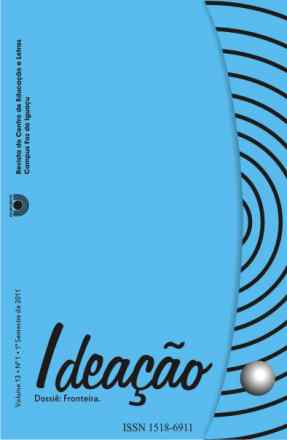Ética e estética dão a luz à alteridade. Teatro de Boal: uma possível leitura para o campo educativo
Ideação
Ética e estética dão a luz à alteridade. Teatro de Boal: uma possível leitura para o campo educativo
Autor Correspondente: Márcia Regina Forti Barbieri | [email protected]
Palavras-chave: ética, estética, alteridade
Resumos Cadastrados
Resumo Português:
Identifica-se na proposta de Augusto Boal, contribuições para que se constitua um sujeito sensível e produtor de conhecimento, na vivência em sociedade – com apoio da ética, a estética orienta a ação e propicia o prazer de criar. Delineia-se nessa proposta uma pedagogia que nos torna sensíveis ao mundo em que vivemos e também às pessoas, que nele convivem conosco; abre-nos possibilidades de trabalho e reflexão no processo educativo, que nos incomodam e nos instigam a buscar novas soluções, para que ao nos depararmos com conflitos e problemas novos e de difícil solução, não venhamos a impor aquilo que já dominamos. É nos proposto lançarmo-nos a novas descobertas sem que nos encaixemos, ou forcemos a outrem encaixar-se, a algo já determinado, por falta de ousarmos o novo. Ultrapassa-se o domínio dos conteúdos curriculares estabelecidos no intento da humanização, que trará consigo outros frutos desejados.
Resumo Inglês:
It can be identified in the proposal of Augusto Boal contributions that constitutes a sensible citizen and knowledge producer when living in society - with support of the ethics, the aesthetic guides the action and propitiates the pleasure to create. The Pedagogy that is delineated in this proposal makes us sensible to the world where we live and also to the people who coexist in it with us; it opens for us possibilities of work and reflection in the educative process that bother us and instigate us to search new solutions, so that when facing conflicts and new problems of difficult solution we don’t impose a way to solve that we already dominate. Boal recommends that we launch ourselves into new discoveries without incasing or forcing somebody to incase itself in something previously determined instead of trying the new. The domain of the established curricular contents is exceeded in the intention of the humanization that will bring whith it other desired fruits.

